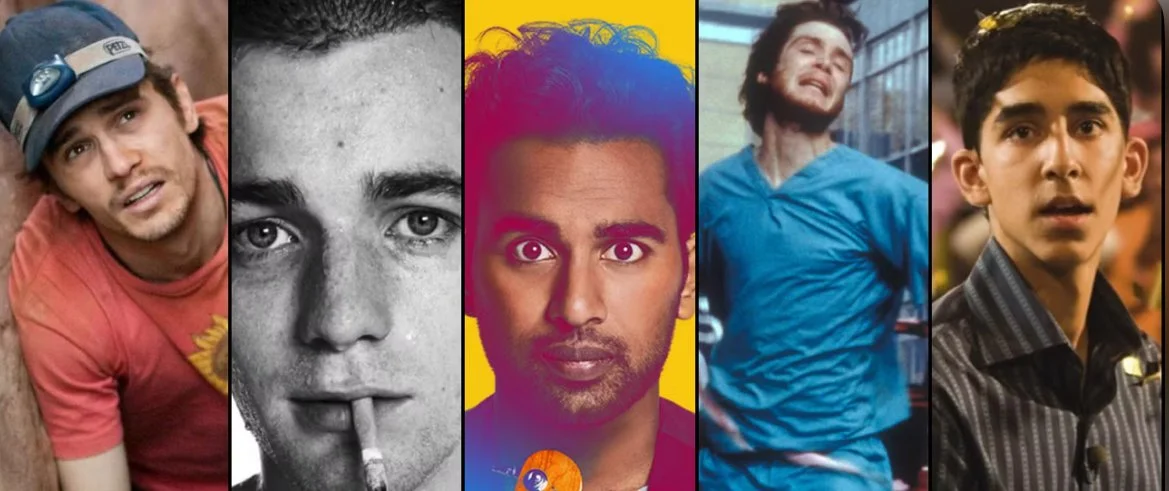Danny Boyle is one of those rare British directors who managed to break into the Hollywood system without losing his pulse. At his best, Boyle injects films with so much kinetic energy you feel like you’ve just done a line of coke with the characters on screen.
At his worst? Well, Boyle’s filmography is as chaotic as his editing style. He’s never been one for consistency, but when he connects, it’s like a cinematic defibrillator. Even his failures are interesting. And that’s more than you can say for most directors still working today.
Here’s my personal ranking of Danny Boyle’s films—some are solid, a few are genuinely great. You won’t find “A Life Less Ordinary,” “The Beach,” or “Yesterday” here; they’re easily his weakest work.
1. Trainspotting (1996)
Still Boyle’s most iconic film. A visual and sonic punch to the face. It captured a generation’s nihilism, addiction, and lust for life with a style that’s been copied, but never duplicated. Ewan McGregor’s finest hour. “Choose life”? Boyle chose cinema. Thirty years later, he has yet to top this one.
2. 28 Days Later (2002)
This one changed the zombie genre. Boyle and screenwriter Alex Garland reinvented the undead by making them fast, rabid, and terrifying. Cillian Murphy’s excellent turn, the eerie digital cinematography, that Godspeed You! Black Emperor needle drop—iconic. A modern horror classic.
3. Shallow Grave (1994)
His debut, and what a way to start. A pitch-black comedy-thriller about three flatmates who discover a dead body and a suitcase of cash. Cynical, stylish, and mean in all the right ways. It set the tone for Boyle’s early work—morally queasy and impossible to look away from.
4. Slumdog Millionaire (2008)
Yes, it won Best Picture. Yes, it’s beloved by millions. It’s Boyle doing Dickens by way of “Who Wants to Be a Millionaire,” and while it’s infectiously energetic, it can also feel emotionally manipulative. Regardless, it’s one hell of an entertaining movie, and is maligned by critics today only because it triumphed at the Oscars, which has done it a great disservice.
5. 127 Hours (2010)
Boyle pulls off a minor miracle: a minimalist movie about a guy stuck under a rock that’s actually watchable. James Franco gives his last great performance, and the film has great tension and ingenuity. But once you’ve seen it, and the squirm-inducing escape sequence, it’s hard to revisit.
6. Steve Jobs (2015)
The anti-biopic. Aaron Sorkin’s rapid-fire dialogue meets Boyle’s frantic energy, and somehow it works. Michael Fassbender is electric, even if he looks nothing like Jobs. It’s not an Apple commercial—it’s a chamber drama in three acts, two of which are flat-out great. Underrated.
7. Trance (2013)
A sexy, twisty little mindbender that starts strong and only further delves into the surreal. It’s like Boyle wanted to make Inception but decided to just make his own unique vision. James McAvoy is excellent. Maybe Boyle’s most underrated film.
8. Sunshine (2007)
Yes, the third act goes off the rails. Yes, it turns into a horror movie halfway through. But “Sunshine” is a visually stunning, emotionally resonant sci-fi film that swings for the fences. The first two acts are 2001: A Space Odyssey meets Solaris with a dash of Boyle’s adrenaline. A trilogy was planned before the film bombed at the box-office.
9. T2 Trainspotting (2017)
A stylish, self-aware nostalgia trip that reunites the original crew with a mix of melancholy, and mayhem. Boyle leans hard into reflection, showing aging junkies wrestling with regret, revenge, and the wreckage of their youth. It doesn’t fully justify its return, and it never hits the raw nerve of the original, but scattered moments of poignancy, and visual flair make it a flawed yet strangely fitting coda.
10 – 28 Years Later (2025)
Boyle and Garland return 23 years later for an ambitious, but uneven sequel. A new family at its center, the Holy Island setting, and newly infected packs— much of it captured on iPhones. It’s not as raw as the original, but for better or worse, it’s riskier in its refusal to separate itself from it. There are moments of visceral intensity, but its themes, ranging from cult dynamics to societal collapse, are introduced more than explored. This is an eerily somber film, and one that’s surprisingly short on action. A bold statement.
11. The Beach (2000)
A paradise-lost fable, starring Leonardo DiCaprio, that can’t decide if it wants to be Lord of the Flies, Apocalypse Now, or a teen travelogue. Boyle’s direction is stylish and occasionally inspired, and the film isn’t as bad as its reputation purports it to be, but the story gets increasingly ridiculous, especially in the third act.
12. Millions (2004)
Boyle’s most family-friendly film is also his most predictable. A modern parable about faith, greed, and innocence. “Millions” occasionally veers into saccharine territory, but it’s heartfelt and visually never dull, with a child’s-eye whimsy that Boyle handles surprisingly well.
13. A Life Less Ordinary (1997)
Boyle tries to channel a screwball romance through a Tarantino lens, and the result is muddled at best, cringe at worst. Ewan McGregor and Cameron Diaz do their best with a paper-thin script, but the film’s forced quirk and juvenile fantasy leanings make it a slog. The rare Boyle film that feels completely unsure of what it wants to be.
14. Yesterday (2019)
The premise—what if The Beatles never existed, and only one man remembered them—is clever. But Boyle never digs beneath the surface. What could have been a rich, melancholic look at art, memory, and cultural legacy becomes a feather-light rom-com with sitcom energy. Himesh Patel is charming, but it’s too safe, too toothless, and ultimately forgettable.






